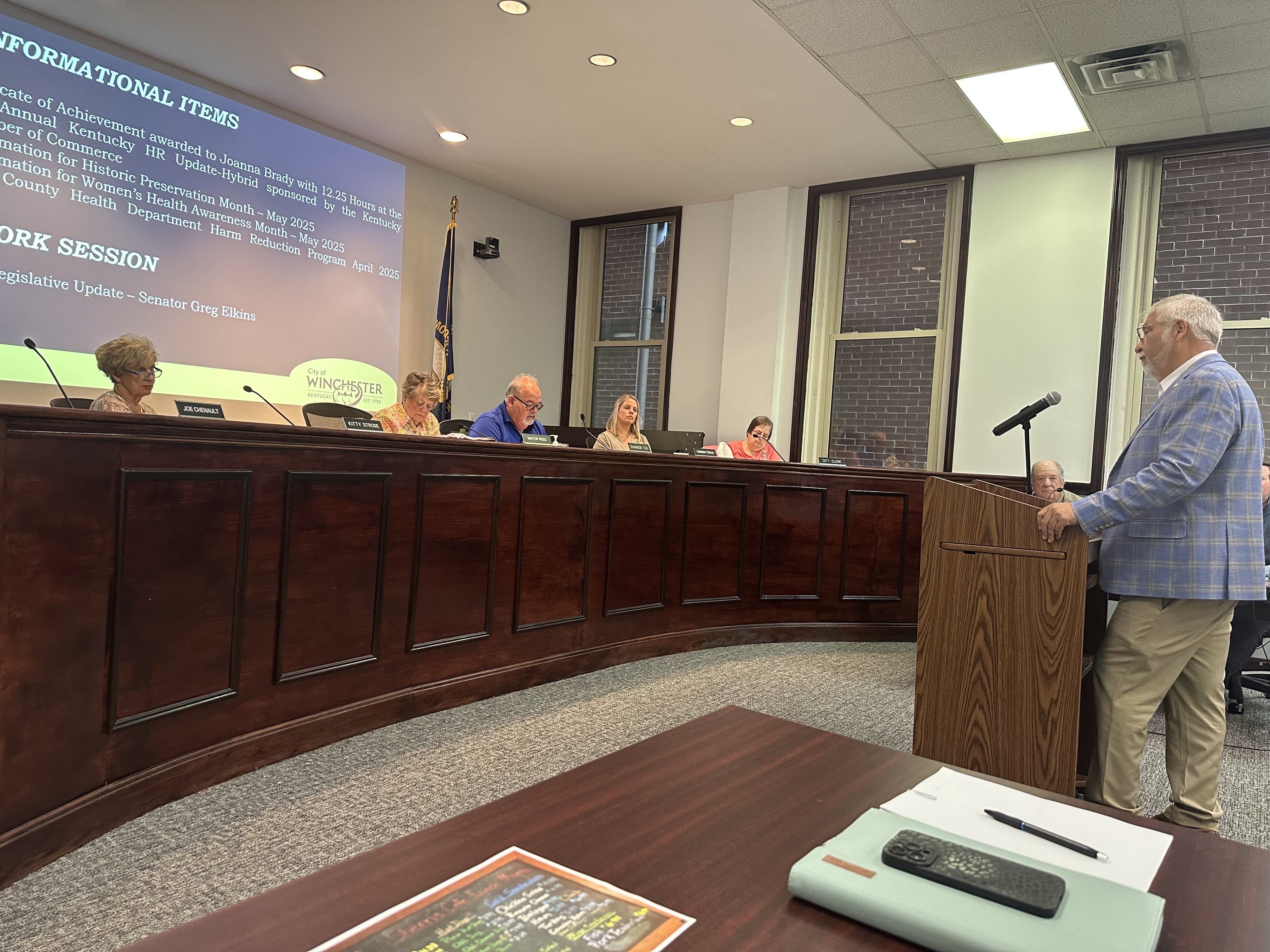Housing Authority discusses five-year plan
Published 10:30 am Thursday, January 16, 2025
|
Getting your Trinity Audio player ready...
|
The Winchester Housing Authority, which is funded by the Federal Department of Housing and Urban Development (HUD), is Clark County’s local administrative agency for housing assistance programs.
As such, it oversees properties at Memorial Park, Tyler Banks, Stevenson Heights, Sequoia Village, and Smith Manor.
On Monday, January 13, the organization held a hearing at its office on 200 Canewood Drive to discuss a five-year plan.
“The Housing Authority is taxpayer money, and we make sure that we share this with the community and with the tenants,” said Cheri James, interim Executive Director of the Winchester Housing Authority.
Many residents and others from the community – including Winchester Mayor JoEllen Reed – were present to engage in the hearing and conversations.
James touched on some of the guidelines that were required of the five-year plan.
“With our five year plan, we also have to make sure that we are consistent with the consolidated plan from the state of Kentucky,” she said. “This plan was sent to Frankfort, and it was certified.”
James also stated that the plan was in compliance with other guidelines – including the Violence Against Women Act (VOWA) that provides housing protections for people who apply or are living in units subsidized by the federal government who have been victims of different crimes, including domestic violence, dating violence, sexual assault, and more.
In terms of particular projects that others can see, a multitude were mentioned.
These included roofing, gutters, swerve lines, appliance replacements, and others.
“The appliances, refrigerators, stoves, sinks, fixtures, hot water heaters, and all of those things can be capital fund projects,” James said. “All the windows need to be replaced…right now, we’re looking at three years to get them all complete.”
James indicated that some issues – such as crown molding – would likely be more of a maintenance issue than a capital fund project.
As might be expected, those present mentioned some concerns.
“When you tear the ramps down, are we going to be given notice, or am I just going to come home one day and something [will] be gone?’”, asked one resident.
“They’re doing it case by case…we are going to address them individually…and try to fix them individually” responded James, saying that the move would not be sudden. “I can just say that the ones that are there now are not ADA compliant, so we can’t leave them.”
The Americans with Disabilities Act, or ADA, is a civil rights law prohibiting discrimination based on disability.
Another attendee asked about concerns regarding mold.
“You have to identify where the mold is coming from. If there’s a water leak or something like that….once they’ve abated [any] water issue, then that would be a drywall issue,” James added. “That can be a capital fund project, or [is] probably more everyday operations.”
Funds for non-maintenance issues, such as management training and improvements, were also spoken of.
James also referred to upcoming steps regarding the five year plan.
“Once we receive the capital funds, we’re under an obligation from HUD to spend the capital. We have two years to obligate the funds and two years to actually spend the funds,” James said. “Part of the performance evaluation from HUD is how quickly and efficiently you spend that money.”
A meeting of the Winchester Housing Authority will take place on Monday, January 27, at 4:00 p.m. at the office on 200 Canewood Drive.






